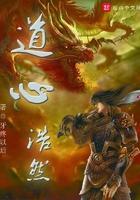As we shook hands, he added a last word. 'You must take your own time, but it's not a case for slouching. Every day that passes ivery is sending out the worst kind of poison. The Boche is blowing up for a big campaign in the field, and a big effort to shake the nerve and confuse the judgement of our civilians. The whole earth's war-weary, and we've about reached the danger-point. There's pretty big stakes hang on you, ****, for things are getting mighty delicate.'
I purchased a new novel in the shop and reached St Pancras in time to have a cup of tea at the buffet. Ivery was at the bookstall buying an evening paper. When we got into the carriage he seized my _Punch and kept laughing and calling my attention to the pictures.
As I looked at him, I thought that he made a perfect picture of the citizen turned countryman, going back of an evening to his innocent home. Everything was right - his neat tweeds, his light spats, his spotted neckcloth, and his Aquascutum.
Not that I dared look at him much. What I had learned made me eager to search his face, but I did not dare show any increased interest. I had always been a little off-hand with him, for I had never much liked him, so I had to keep on the same manner. He was as merry as a grig, full of chat and very friendly and amusing. Iremember he picked up the book I had brought off that morning to read in the train - the second volume of Hazlitt's _Essays, the last of my English classics - and discoursed so wisely about books that Iwished I had spent more time in his company at Biggleswick.
'Hazlitt was the academic Radical of his day,' he said. 'He is always lashing himself into a state of theoretical fury over abuses he has never encountered in person. Men who are up against the real thing save their breath for action.'
That gave me my cue to tell him about my journey to the North. Isaid I had learned a lot in Biggleswick, but I wanted to see industrial life at close quarters. 'Otherwise I might become like Hazlitt,' I said.
He was very interested and encouraging. 'That's the right way to set about it,' he said. 'Where were you thinking of going?'
I told him that I had half thought of Barrow, but decided to try Glasgow, since the Clyde seemed to be a warm corner.
'Right,' he said. 'I only wish I was coming with you. It'll take you a little while to understand the language. You'll find a good deal of senseless bellicosity among the workmen, for they've got parrot-cries about the war as they used to have parrot-cries about their labour politics. But there's plenty of shrewd brains and sound hearts too. You must write and tell me your conclusions.'
It was a warm evening and he dozed the last part of the journey.
I looked at him and wished I could see into the mind at the back of that mask-like face. I counted for nothing in his eyes, not even enough for him to want to make me a tool, and I was setting out to try to make a tool of him. It sounded a forlorn enterprise. And all the while I was puzzled with a persistent sense of recognition. Itold myself it was idiocy, for a man with a face like that must have hints of resemblance to a thousand people. But the idea kept nagging at me till we reached our destination.
As we emerged from the station into the golden evening I saw Mary Lamington again. She was with one of the Weekes girls, and after the Biggleswick fashion was bareheaded, so that the sun glinted from her hair. Ivery swept his hat off and made her a pretty speech, while I faced her steady eyes with the expressionlessness of the stage conspirator.
'A charming child,' he observed as we passed on. 'Not without a touch of seriousness, too, which may yet be touched to noble issues.'
I considered, as I made my way to my final supper with the jimsons, that the said child was likely to prove a sufficiently serious business for Mr Moxon Ivery before the game was out.















